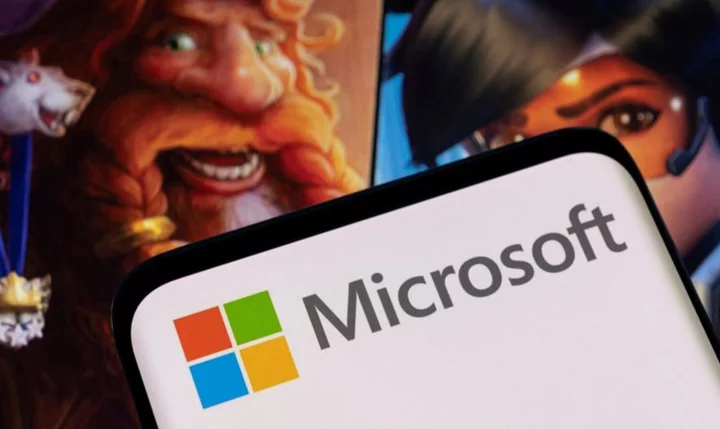By Mike Scarcella
WASHINGTON The U.S. Federal Trade Commission's (FTC) bid to temporarily block Microsoft's $69 billion purchase of "Call of Duty" maker Activision Blizzard must clear some key hurdles to succeed, legal experts said.
U.S. District Judge Jacqueline Scott Corley on Tuesday gave the go-ahead to the largest-ever gaming industry deal, rejecting the Biden administration's contention that it would hurt consumers, but prompting the FTC to appeal.
A U.S. federal appeals court will have a number of options available to it as it weighs that appeal, but legal professionals noted the rushed timing and the need to prove any alleged error by the district court judge merits overturning her decision could hinder the antitrust enforcer's effort.
The FTC on Thursday night asked the San Francisco-based 9th U.S. Circuit Court of Appeals, which hears cases from California and other states in the U.S. West, to issue a preliminary injunction that pauses the deal while the agency prepares to challenge it at a trial in August.
In its appeal, the FTC said Corley's order allowing Microsoft to move ahead with the deal incorrectly held the agency to a legal standard that was too high.
Some legal experts said the FTC had made a compelling argument, but also said there was no certainty for success. Such merger cases are also rare in the federal courts.
Corley's temporary order prohibiting the deal expires at 11:59 p.m. Pacific Time on Friday (0659 GMT on Saturday), and so the appeals court will be expected to issue an order on Friday. Microsoft and Activision are set to close the deal on July 18.
The appeals court could "administratively" block the deal for at least a few days, allowing a panel of judges more time to study the dispute and to rule, several legal experts said.
The court alternatively could grant the FTC's request for an injunction - which could create a much longer pause - or outright deny it.
Microsoft President Brad Smith has called the FTC's lawsuit "a demonstrably weak case," and he said the company "will oppose further efforts to delay the ability to move forward."
Kathleen Bradish, who oversees legal advocacy at the American Antitrust Institute, said the FTC "certainly has valid grounds" to question the trial judge's order.
Bradish said any mistake by Corley "won't just have a bearing on this case, but has the potential to affect any vertical merger challenge in the foreseeable future." A vertical merger refers to a deal between two companies from different parts of the same supply chain.
Antitrust scholar Sean Sullivan, who teaches at University of Iowa's law school, said an appeals court can modify or throw out a lower court opinion based on "errors of law."
"But not every alleged error is an actual error," Sullivan said. "And not every actual error compels intervention."
The appeals court is expected to move quickly. But the race against the clock is the fault of the FTC, said Douglas Ross, who teaches antitrust law at University of Washington's law school.
The FTC could have sued Microsoft in December in federal court but instead filed a case at the agency's in-house forum, where an administrative law judge has no power to issue a preliminary injunction.
The appeals court "may be less than sympathetic with the argument it needs to hurry up and do something when the blame for the emergency lies entirely with the FTC," Ross said.
In 2007, the FTC asked the D.C. Circuit to issue a preliminary injunction to block Whole Foods' merger with Wild Oats. The court issued an "administrative" stay that lasted a few days, and then a panel dissolved its order and let the merger move ahead.
"Although the FTC has raised some questions about the district court's decision, it has failed to make a 'strong showing that it is likely to prevail on the merits of its appeal,'" the District of Columbia Circuit panel said in its order. Whole Foods later settled with the FTC.
(Reporting by Mike Scarcella; Editing by Mark Potter)

